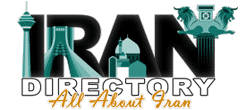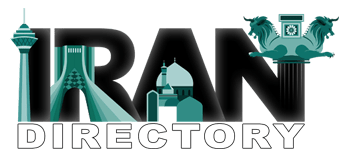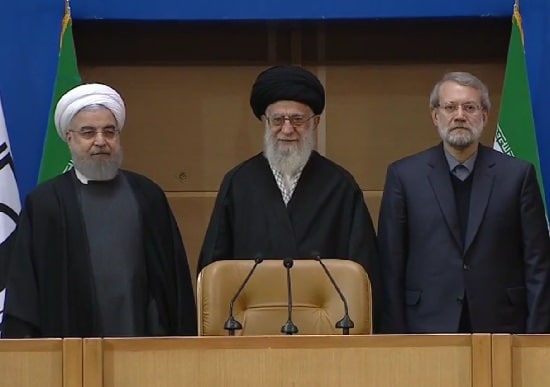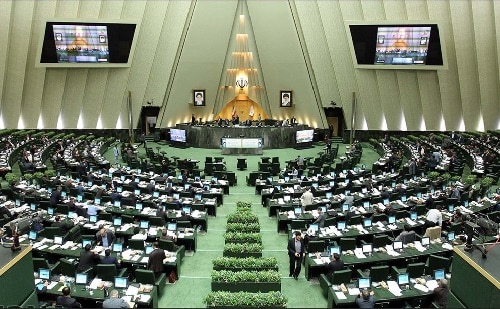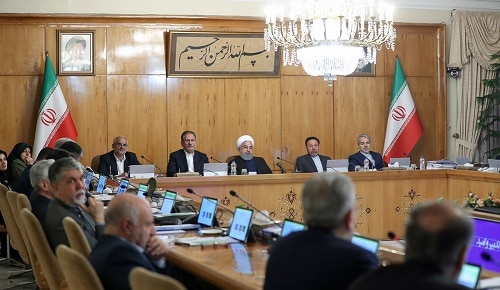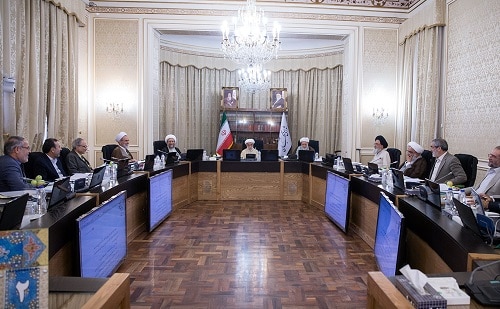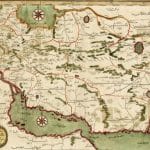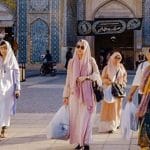The Iranian Government is the Islamic Republic of which the Iranian nation, led by their long-held belief in the rule of law and justice of the Qur’an, after their victorious Islamic Revolution Imam Khomeini’s supreme authority, imitating Ayatollah Ali Khamenei, voted in favor of the 1970 referendum, with a majority of 89.2% of all eligible voters.
In the Islamic Republic of Iran, all civil, criminal, financial, economic, administrative, cultural, military, political and other laws and regulations must be in accordance with Islamic standards. This principle applies to or applies to all the principles of the Constitution and other laws and regulations.
In the Islamic Republic of Iran, state affairs are governed by public opinion. Through the election of the President, the members of the Islamic Consultative Assembly, the members of the Councils and so on, all of whom are elected and attributed to different elections. The ruling forces in the Islamic Republic of Iran are: the legislature, the executive and the judiciary, which operate under the authority of a supreme leader, independent of one another a People and with the variety of tasks.
Superior Leadership in Islamic republic of Iran
After Imam Khomeini’s “Quds Sere al-Sharif”, which was recognized and accepted by the overwhelming majority of the people, the leader was appointed by the experts of people. The leader is equal to the rest of people. The conditions and attributes of the leader are difficult and varied, including the scientific competence required to issue fatwas on various subjects, the justice needed to lead the of Moslems, the correct political vision and the social, tact, courage, management and power to lead and …
Determining the overall policies of the system, overseeing the proper implementation of the general policies of the system, the referendum order, the commanding general Armed, resolving disputes between the three powers, and installing and dismissing them, and accepting the resignation of a number of responsibilities and officials, including jurists of the Guardian Council, the chief justice of the organization The Islamic Republic of Iran Broadcasting, Joint Staff, Armed Forces, etc. are among the duties and responsibilities of the leader.
Leadership Expert Assembly
The Assembly of Experts is an institution that, under the constitution, has three important responsibilities for leadership of the system: “election,” “dismissal,” and “oversight.” Of course, the members of this House are directly elected by the people in the referendum. The choice of leadership in Iran, like many countries, is two-stage. In the first stage, the people vote for their trusted experts, and in the second stage, the representatives of the qualified jurists choose the best ones for leadership.
Legislative power
Parliament is the most important pillar of decision making and decision making in the Islamic Republic of Iran. The Islamic Consultative Assembly is composed of the representatives of the nation, who are directly elected by popular vote. The term of office of the Parliament is four years. Elections for each period must be held before the end of the preceding period so that the country will not be without a parliament at any time.
The Zoroastrians and the Jews each elect one representative, and the Assyrian and Chaldean Christians altogether a representative, and the Armenian Christians of the south and north each one has a representative. Iran is one of the few countries where even religious minorities have independent representatives in parliament. The Islamic Consultative Assembly can legislate in general on matters as stipulated in the constitution. The Islamic Consultative Assembly cannot make laws that contradict the principles and principles of the official religion of the country or the Constitution. It is up to the Guardian Council to determine this in the order set out in Article Ninety-Six of the Constitution. The Islamic Consultative Assembly has the right to investigate all affairs of the country.
The President must vote for the Council of Ministers after the formation and before any other action. During his tenure, he can also ask the House of Representatives for a vote on important and contentious issues. Members of the Islamic Consultative Assembly may, if they deem necessary, summon the Cabinet or any of the Ministers.
If at least one-third of the members of the Islamic Consultative Assembly are impeached as executors of the executive branch and administration of the country, the president must appear in parliament within a month of its drafting and give sufficient clarification on the issues raised. If, following the President’s disagreement, the two-thirds majority voted for the President to be ineligible, Paragraph 10 of the one hundred and tenth principle informs the leadership.
Executive power
Exercise of executive power except in matters directly governed by this law by leader, is governed by the President and the Ministers. After the Supreme Leader, the President is the highest official in the country, and is responsible for implementing the Constitution and presiding over the executive power. The president is elected for a four-year term by direct vote of the people, and his re-election is consecutive for only a permitted term. The President must be selected among the religious and political rabbis who are eligible to: believes in the foundations of the Islamic Republic of Iran and the official religion of the country, manager, thankful.
The President is accountable to the nation, the Supreme Leader and the parliament within the limits of his or her powers and duties under the Constitution or ordinary laws. The President is obliged to sign the resolutions of the Parliament or the result of the referendum after the legal and communicative steps and submit them to the officials for implementation.
The President submits his resignation to the Supreme Leader and continues to perform his duties until his resignation is accepted. Ministers are nominated by the President and nominated for a vote of confidence. With the change of parliament, no new vote of confidence is needed for ministers.
judiciary power
It is the exercise of the judiciary by the courts of justice that must be established in accordance with Islamic standards and resolve disputes and the protection of public rights and Perform justice and maintain the divine limits. The judiciary is an independent power that safeguards individual and social rights and is responsible for the realization of justice and is responsible for a wide variety of tasks including litigation. And issuing judgments on protests, altercations, complaints, resolving hostilities and resolving disputes, restoring public rights, and promoting justice and legitimate freedoms. Overseeing the good law enforcement, the discovery of the crime and prosecution, and the punishment of the offenders, and the enforcement of the Islamic Penal Code and the appropriate action for Prevention of crime and correction of offenders.
In order to carry out the responsibilities of the judiciary in all judicial, administrative, and executive affairs, the Supreme Leader has appointed a just, well-informed and knowledgeable Judiciary Director. Appoints the head of the judiciary for five years, the highest authority in the judiciary. The assets of the leader, the president, the vice presidents, the ministers, and their spouses and children before and after the service are handled by the head of the judiciary. The Minister of Justice is responsible for all matters relating to the relationship between the judiciary power and the executive powers and the legislature power, including those headed by the head of the judiciary. The president proposes to be elected. The head of the judiciary can delegate full financial, administrative, and non-judicial powers to the Minister of Justice.
Other Important Institutions in the Islamic Republic of Iran
Guardian Council
A Council called the Guardian Council is composed of the following composition in order to safeguard the laws of the Islamic Republic and the constitution as they are not in conflict with the decisions of the Islamic Consultative Assembly. Guardian council is made of: Six of the righteous jurists who are aware of the requirements of the time and the daily issues. It is up to the leader to choose. Six jurists, in various fields of law, among Muslim jurists nominated by the Head of the Judiciary to the National Assembly and voted The Assembly is elected. The members of the Guardian Council shall be elected for a term of six years.
All resolutions of the Islamic Consultative Assembly must be sent to the Guardian Council. The Guardian Council is required to review it within ten days of its receipt for compliance with Islamic and constitutional standards and if it finds it inconsistent. Appeal returned to Parliament. Otherwise, the decree is applicable.
Determining non-contradiction of the decrees of the Islamic rule with the decrees of Islamic jurists and determining non contradiction of the Islamic consultative with the majority of jurists of the Guardian Council. The Guardian Council oversees the elections of the Assembly of Experts, the Presidency, the Islamic Consultative Assembly, and the referendum.
Supreme Court of the country
The Supreme Court is in charge of overseeing the proper implementation of laws in courts and the unity of judicial procedure and the responsibilities assigned to it by law. The basis of the rules set by the Head of the Judiciary.
Administrative Justice Court
In order to deal with complaints, protests and protests of public officials or units or by-laws and the exercise of their rights, a court called the Court Administrative Justice “shall be established under the authority of the Head of the Judiciary.
General Inspectorate of the country
Based on the right of the judiciary power to monitor the good affairs of law and the proper implementation of the law in the administrative offices, the organization called the “State General Inspectorate ” is formed under the supervision of the Head of the Judiciary. The law defines the limits of the authority and duties of this organization.
Supreme National Security Council
The Supreme National Security Council, chaired by the President, has a number of tasks to serve the national interest and protect the Islamic Revolution and the national sovereignty and sovereignty of the country. . These tasks include determining the country’s defense-security policies, coordinating political, intelligence, social, cultural and economic activities. In relation to the overall defense and security measures, he mentioned the utilization of the country’s material and spiritual resources to deal with internal and external threats.

